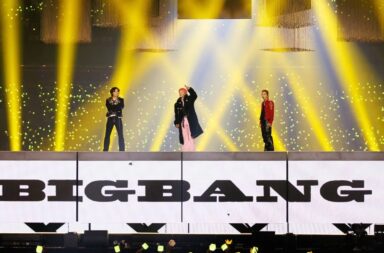The Korean Pop industry is filled with laughable English. From “fiscal theory of porno” to “easy access line,” Korean Pop creates fluidities in the English language that simply do not exist. Call me an ignorant supremacist, but phrases like “if you wanna pretty, every wanna pretty,” “I wanna gossip girl,” and “blue tumbler like a puppy lover,” are so hilarious that I’m pretty sure my entrails are just floating around in the cavity of my body. But alas, while all the bad Engrish has kept my guts bursting for hours upon hours, I have found another source of entertainment, another source of entertainment that still involves English, K-Pop, and the massacre of the former by the latter.
httpv://youtu.be/CDyMQ7M0sSs
SNSD‘s Tiffany and Jessica were both born and raised in California. While I have no proof that English was their first language, it probably was. If not, then it was definitely a close second. Regardless, in this video, their English is almost perfect. There are no alarming errors in their syntax, diction, or pronunciation. But then why oh why do they sound like they have cotton candy for brains?
Tiffany and Jessica are only examples of something I have noticed in Korean entertainment. With only a few exceptions like Brian Joo and f(x)‘s Amber, native English speakers tend to speak in simplified, baby talk. And so, while they speak English with fluency, they are not particularly eloquent. In fact, they sound like bimbos.
Jessica: Tiffany have you heard about the newest smartphone application on our Run Devil Run album?
Tiffany: Yes, I did.
Jessica: Really?!
…
Tiffany: Say, ‘Thank You’
Jessica: Thank You
Tiffany: Yay!
But again, Tiffany and English aren’t the only ones. Ever hear Kara‘s Nicole‘s excruciating pronunciation? Or G.Na‘s simple comebacks to Brian’s smackdowns? Or the ellipses in 2PM‘s Taecyeon‘s sentences?
It may be funny but upon further reflection, it’s more sad than anything. But I don’t think this is something that these idols can help. After all, when your company hacks away at your English in a nation where English is not the official language, what else does one expect?
A native English speaker is a huge asset for a K-Pop company. As a genre that is becoming increasingly global, the perks of having a fluent English speaker are more than obvious. But companies are both misusing and underusing their English speakers. Instead of using them as speakers and representatives of the English language, they are being used as talk machines that will spit out any given phrase—nothing more, nothing less. But what companies may not be realizing is that not only is this a poor use of their English speaking skills, it is also sending their English speaking skills down the sewers. As Korean Pop grows as a global brand, when these speakers need to put their skills to the test when they speak at global concerts and events, they aren’t particularly eloquent. While no one is expecting them to speak with phenomenal oratory skills, hearing Tiffany speak like an airhead, with a bunch of “OMGs!,” “Really?!,” and “Totallys!” at SM Town in NYC was really disappointing to someone who was looking forward to hearing her speak my native language in the flesh.
As K-Pop grows, I can only hope that companies begin realizing the error of their ways and actually use their idols’ language skills. Ask them if “get it in” is family friendly, ask them what else rhymes with “mystery” besides “history,” ask them what “fiscal theory of porno” actually means. Don’t use your idols to simply whip out these IQ numbing phrases; it will hurt them and you in the long run.


